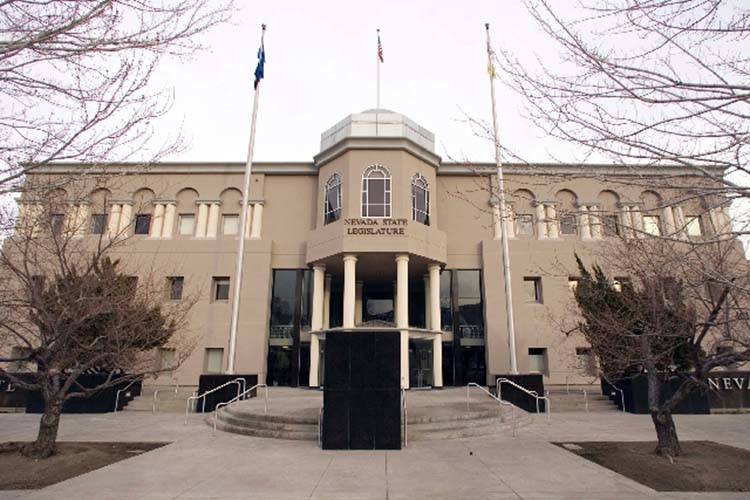STEVE SEBELIUS: Supreme Court says a tax is a tax
In the end, it wasn’t even a close call.
Everybody knows passing a new tax or raising an existing tax in Nevada takes a two-thirds vote in both houses of the Legislature. That’s been the law since voters adopted a constitutional amendment in 1996.
But what about a tax that’s soon to expire? Or one that’s set to go down? Does keeping those taxes at the same level also require a two-thirds vote?
For years, I’ve said no — and I’ve been a lonely voice on the subject. Even the Legislative Counsel Bureau had held that such a vote needs two-thirds.
But in 2019, things changed. Lawmakers considered a bill that would prevent the state’s payroll tax from falling to a lower rate and another that would keep alive an expiring DMV fee. Legislative lawyers looked at the issue in-depth and concluded (based on a close reading of the constitution and contemporary cases decided in other states) that two-thirds wasn’t really necessary after all.
Why? The state constitution says any bill that “creates, generates or increases any public revenue in any form” needs two-thirds. But lawyers contended — as I always have — that because the bills in question maintain only existing revenues at current levels, the two-thirds requirement didn’t apply, and a simple majority was good enough.
Well, on Thursday, the Nevada Supreme Court told us we were flat wrong.
“Based on the plain language of the supermajority provision, we conclude that it applies to the subject bills because they create, generate or increase public revenue,” the unanimous ruling reads. “Because the bills did not pass by a two-thirds majority in the Senate, those portions of the bills that would require a supermajority vote are unconstitutional.”
Chief Justice James Hardesty graciously left out the word “duh.”
The court further explained its reasoning: Because the bills would result in the state receiving more public revenue than it would have realized if the bills had never been passed, they would create and generate an increase in public revenue. Put another way, but for the payroll tax bill and the DMV technology fee, the state would have lost more than $100 million in revenue.
And the part about that money simply maintaining existing tax revenue, not increasing it? “The state’s arguments about how to interpret the supermajority provision are unconvincing,” the court wrote.
Ouch, justices! The state’s arguments were my arguments, and way before it was cool.
But look, I know when I’m beat. I subscribe to the principle articulated in Marbury v. Madison back in 1803: “It is emphatically the province and duty of the judicial department to say what the law is.”
Legislative Democrats were not so generous in defeat. In a joint statement, Speaker Jason Frierson and Senate Majority Leader Nicole Cannizzaro said they were just trying to help the children, unlike those mean Republicans who were coddling Big Business.
No, really: “In 2019, the Legislature blocked an unnecessary corporate tax cut and instead funded raises for educators,” the statement reads. It goes on: “In response, legislative Republicans made it their primary mission over the last two years to protect the bottom line of some of the state’s largest corporations at the expense of Nevada’s schools.”
And again: “Despite their (Republicans) misguided decision to push forward, even in the face of unprecedented shortfalls to our state’s budget this past year, we will continue to seek ways to require large, profitable corporations to pay their fair share and support Nevada families.”
It’s not clear how “misguided” the decision to push forward with a lawsuit was, given that the Republicans won a complete victory. And there’s not a single “my bad!” in there from Democrats who the Supreme Court found had violated the state constitution, which they swore an oath to protect and defend.
It’s perfectly fair to question the wisdom of the voters in 1994 and 1996 in approving the two-thirds requirement (which they did overwhelmingly, by the way).
It’s anti-majority rule, gives outsize power to the obstreperous minority and has contributed to Nevada’s problems frequently in the quarter-century since it took effect.
But like it or not, the people have spoken. And now, so has the Supreme Court to tell us all what the constitution requires, even if you think of your own purpose as noble and your opponents as ignoble. So if Democrats really want their Republican colleagues to “work with us on meaningful revenue legislation,” as the Democratic statement reads, they know what they must do.
Get to two-thirds.
Contact Steve Sebelius at SSebelius@reviewjournal.com. Follow @SteveSebelius on Twitter.

















